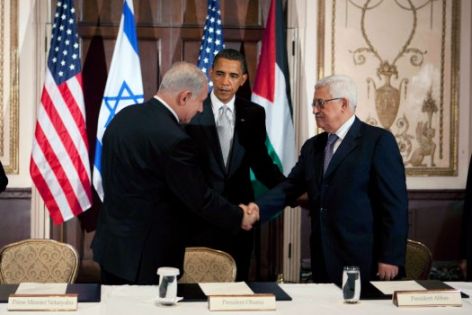
Middle East Peace Talks Resume: Kerry's Breakthrough Initiative
U.S. Secretary of State John Kerry has announced potential breakthrough negotiations between Israel and Palestine, establishing temporary headquarters in Amman, Jordan, to facilitate discussions between all parties involved.

Middle East leaders handshake meeting
Kerry's diplomatic efforts have reportedly secured private commitments from both Israeli Prime Minister Benjamin Netanyahu and Palestinian leader Mahmoud Abbas. Reports suggest Abbas may have agreed to recognize Israel as a Jewish state within 1967 borders, while Netanyahu might have committed to temporarily halt new settlements and withdraw from 90% of the West Bank, though Israeli officials deny these claims.
As a gesture of goodwill, Israel announced the release of several Palestinian prisoners. Additionally, Kerry is working on a $4 billion investment package for the Palestinians to encourage further cooperation.
Both sides face significant internal challenges:
- Palestinians express cynicism and division among factions
- Netanyahu risks coalition instability if concessions are deemed too extensive
- Israeli news reports suggest possible faction departures over peace talks
- A national referendum would be required before finalizing any deal
The regional context has changed dramatically with:
- Egypt's military coup
- Increasing lawlessness in the Sinai Peninsula
- Syria's ongoing civil war
- Growing presence of extremist groups
While a temporary peace agreement might be achieved, biblical prophecy indicates continued tension in the region until Jesus Christ's return. Jerusalem is prophesied to remain a point of international conflict, with nations gathering for battle there (Zechariah 14:2) before Christ establishes His government in Jerusalem (Zechariah 14:4-9).
Potential benefits of a peace treaty include:
- Increased prosperity in the West Bank
- Reduced pressure on Israel from the U.S. and EU
- Possible stabilization of regional tensions
- Creation of conditions for broader Middle East peace
The situation remains complex and dynamic, requiring continued observation of developments in this historically significant region.
Related Articles

Pearl Harbor and 9/11: Two Historic Sneak Attacks on America

